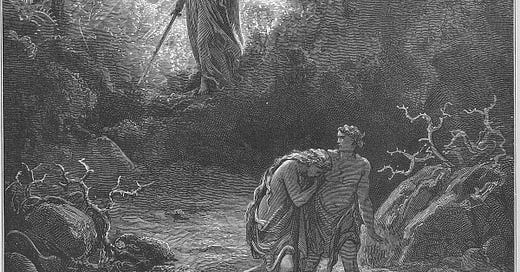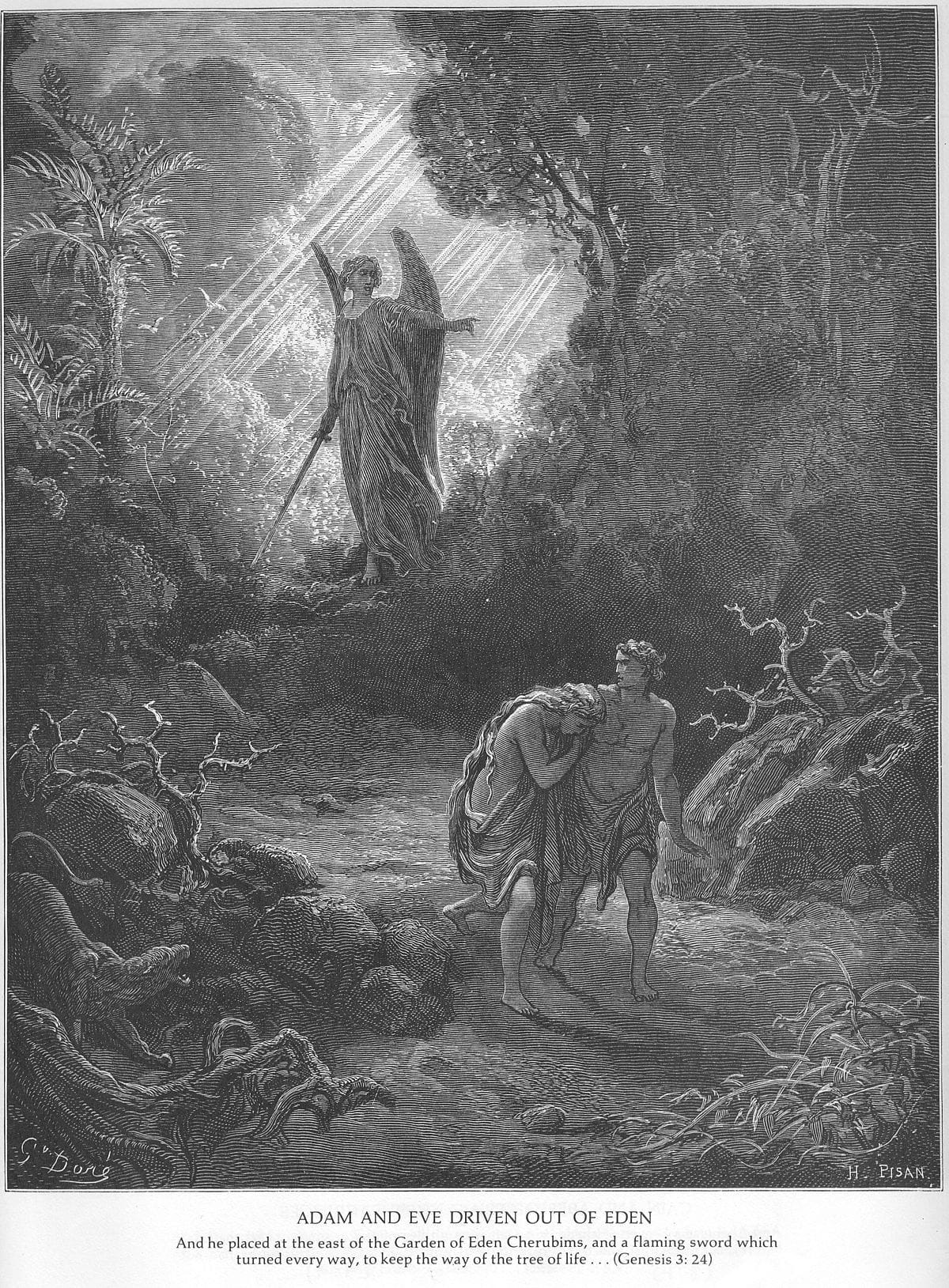If you started a new Bible reading plan for this year, you have probably just read about the fall in Genesis 3. The origin story of Sin slamming into the world, human history, and our hearts. But don’t miss how God’s grace narratively overcomes sin. There is a grace upon grace after that bitten fruit.
As we read Genesis 3, there are at least 6 instances of God’s grace and mercy in the wake of sin.
1) God Draws Near (3:8)
Rather than Adam and Eve dropping dead or being air-lifted out of the garden and handed over to Satan, a marvelous thing happens in the narrative. God goes for a walk. He goes toward Adam and Eve. He still draws near. He looks for them.
2) God Calls Out (3:9)
“Where are you?” This is mercy. God is not in need of information. This is God delivering a gentle call. No thundering, “I told you!” This is akin to Jesus’s call in the Gospel of Matthew, “Come to me all who are weary.” Here God speaks to a burdened, ashamed, and fearful Adam and Eve, “Where are you? Come to me.”
3) God Gently Leads (3:10–13)
The questions continue from God: “Who told you that you were naked?” “Did you eat from the tree?” “What have you done?” Again, God already knows these answers. But this is for our benefit. We are learning about God’s nature, attributes, and relational dynamics with us sinners. He doesn’t hurl, cram, or drag us along. He gently brings us into reality. He helps us see the situation—and see what he is ready to do about it.
4) God Gives the Gospel (3:15)
Sin is confessed. “I ate.” And graciously, no one is vaporized. A promise is given. Someone will be born of your line that will destroy the Serpent. It’s going to a battle from now own, but the day is coming. The promise of Jesus is already here. God brings the gospel to bear on our sin.
5) God Illustrates the Gospel (3:21)
The naked Adam and Eve are clothed by God. He takes the skins of animals and clothes them. Now, how do you get animal skins? There is no Nordstrom or Bass Pro Shop in Eden. The only way to get animal skins is by the death of an animal. God sheds the blood of an animal to clothe Adam and Eve. The first sacrifice, the first picture of a substitute covering sinners. God gave a preview of the Great Exchange to come at Easter weekend (2 Cor 5:21).
6) God Wants to Transform Us (3:22–24)
Adam and Eve are evicted from Eden. The garden is now equipped with a supernatural security system—“stationed the cherubim and the flaming, whirling sword east of the garden of Eden to guard the way to the tree of life” (v.24). Why? So Adam and Eve would not eat of the tree of life and be locked in their sinful condition. God wants to transform us. He has our redemption, justification, sanctification, and glorification in view.
God still draws near to us. Longs for us. Looks for us when we are relationally distant. He calls out to us from the word, by the promptings of the Spirit, “Come to me.” He gently leads us to still waters and green pastures with him. He invites us to turn from sin and turn to him. “Son, you are always with me, and all that is mine is yours” (Luke 15:31). Be reminded of what Jesus did on the cross. Peer into the empty grave. “So, you too consider yourselves dead to sin and alive to God in Christ Jesus” (Rom 6:11). And know that God is at work in you, transforming you, protecting you until eternity.




